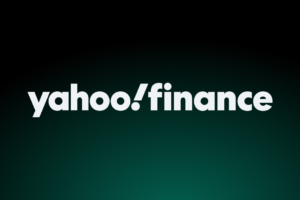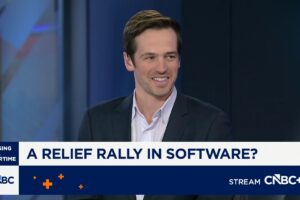<p class="canvas-atom canvas-text Mb(1.0em) Mb(0)–sm Mt(0.8em)–sm" type="text" content="PayPal Holdings (NASDAQ: PYPL) is leading the charge in the era of digital payments. The company’s performance proves it. The stock is up 181% over the past three years, and PayPal entered 2019 with momentum after growing adjusted revenue and earnings by 14% and 28%, respectively, last year. Is the stock still a buy? Let’s find out. ” data-reactid=”11″>PayPal Holdings (NASDAQ: PYPL) is leading the charge in the era of digital payments. The company’s performance proves it. The stock is up 181% over the past three years, and PayPal entered 2019 with momentum after growing adjusted revenue and earnings by 14% and 28%, respectively, last year. Is the stock still a buy? Let’s find out.


Image source: Getty Images.
One reason not to buy
<p class="canvas-atom canvas-text Mb(1.0em) Mb(0)–sm Mt(0.8em)–sm" type="text" content="First, let's compare the valuation and growth expectations of PayPal with its peers. Here's how PayPal stock matches up against other payment providers – Mastercard, Visa, Discover Financial Services, and American Express: ” data-reactid=”26″>First, let’s compare the valuation and growth expectations of PayPal with its peers. Here’s how PayPal stock matches up against other payment providers — Mastercard, Visa, Discover Financial Services, and American Express:
| Metric | PayPal Holdings | Mastercard | Visa | Discover | American Express |
|---|---|---|---|---|---|
| Forward P/E | 37.48 | 31.63 | 29.96 | 8.84 | 13.63 |
| Dividend yield | NA | 0.55% | 0.63% | 2.17% | 1.41% |
| Five-year expected earnings growth | 21.22% | 20.79% | 15.79% | 20.84% | 15.00% |
Data source: YCharts and Yahoo Finance! PE = price-to-earnings. Five-year earnings growth is based on the consensus analyst estimate.
While PayPal offers investors plenty of growth potential, the recent surge in the stock has tilted the value proposition in favor of the major credit card companies.
Let’s consider Mastercard. Analysts expect both PayPal and Mastercard to grow earnings at about 21% annually over the next five years, which is consistent with the high earnings growth of both companies in recent years. However, investors can get the same amount of growth in Mastercard for a lower valuation.
The value gets even more compelling with Discover and American Express, which offer double-digit growth in earnings and a rock-bottom valuation.
<p class="canvas-atom canvas-text Mb(1.0em) Mb(0)–sm Mt(0.8em)–sm" type="text" content="The top credit card stocks are good alternatives for investors looking to ride the growth in digital payments. Much of PayPal's stellar growth since separating from eBay in 2015 has been credited to management’s partnership strategy. PayPal has formed alliances with major credit cards, banks, and other tech giants, including Facebook, Alibaba, and Alphabet, to allow consumers to choose from a wide range of payment options at checkout. This strategy has helped expand PayPal’s customer base and engagement, and it has helped credit card companies maintain strong payment volume growth as more consumers migrate over to a digital economy.” data-reactid=”33″>The top credit card stocks are good alternatives for investors looking to ride the growth in digital payments. Much of PayPal’s stellar growth since separating from eBay in 2015 has been credited to management’s partnership strategy. PayPal has formed alliances with major credit cards, banks, and other tech giants, including Facebook, Alibaba, and Alphabet, to allow consumers to choose from a wide range of payment options at checkout. This strategy has helped expand PayPal’s customer base and engagement, and it has helped credit card companies maintain strong payment volume growth as more consumers migrate over to a digital economy.
Now let’s dig a little deeper and see why investors are willing to pay a premium for PayPal.
Is PayPal stock worth a premium?
One reason investors are bullish on PayPal stock is that the company’s popular peer-to-peer payment app, Venmo, is growing incredibly fast and is expected to emerge as a growth catalyst over the next few years. Venmo made up only 10.7% of PayPal’s total payment volume last year, but its volume grew 80% year over year in the fourth quarter. With that rate of growth, it’s probably not going to be long before Venmo is a serious contributor to PayPal’s total payment volume.
However, Venmo has not made much money for PayPal. The service has been mostly free to use, but management has been implementing new monetization features, such as instant transfer and the Venmo card. The percentage of Venmo’s user base that has used one of these monetizable features reached 29% in the fourth quarter. This puts Venmo’s revenue run-rate at $200 million — not much compared with PayPal’s $15.45 billion in total revenue. However, with Venmo’s fast rate of growth, it should scale up to be a more important contributor to PayPal’s revenue within the next few years.
Additionally, PayPal continues to expand its relationship with its partners, which should allow it to maintain its impressive momentum in adding new customers. For example, Facebook’s Instagram just adopted PayPal’s new processing technology for retailers. Turning Instagram into an e-commerce platform, as opposed to an ad magnet, is one of Facebook’s key growth initiatives.
The Instagram deal emphasizes two of PayPal’s strengths. First, it highlights the trust that individuals and businesses have with the PayPal brand, especially since Facebook is getting serious about privacy and security.
<p class="canvas-atom canvas-text Mb(1.0em) Mb(0)–sm Mt(0.8em)–sm" type="text" content="Second, PayPal is invaluable to merchants that dread the abandoned online shopping cart. Abandoned carts have been the biggest obstacle in driving higher conversion rates with online checkout, especially when small merchants are competing with Amazon.com and its snappy one-click order button. PayPal’s One Touch feature allows users to check out without having to enter addresses, credit card numbers, and passwords on a small mobile screen. This makes PayPal a no-brainer partner for millions of merchants, as well as Instagram.” data-reactid=”44″>Second, PayPal is invaluable to merchants that dread the abandoned online shopping cart. Abandoned carts have been the biggest obstacle in driving higher conversion rates with online checkout, especially when small merchants are competing with Amazon.com and its snappy one-click order button. PayPal’s One Touch feature allows users to check out without having to enter addresses, credit card numbers, and passwords on a small mobile screen. This makes PayPal a no-brainer partner for millions of merchants, as well as Instagram.
PayPal is worth a premium
The blazing growth of Venmo and PayPal’s expanding ubiquity through partnerships are two reasons why PayPal may grow into its valuation.
However, there’s nothing wrong with holding out for a better price. If you can’t stomach the idea of diving into PayPal stock at these highs, you may want to consider other options in the payments space like Mastercard or Discover, which offer comparable growth for a cheaper price.
Still, expect investors to continue awarding PayPal stock a premium over traditional credit card companies, mainly because of PayPal’s enormous opportunity to serve everyday cash management needs with Venmo.
<p class="canvas-atom canvas-text Mb(1.0em) Mb(0)–sm Mt(0.8em)–sm" type="text" content=" More From The Motley Fool ” data-reactid=”49″> More From The Motley Fool
<p class="canvas-atom canvas-text Mb(1.0em) Mb(0)–sm Mt(0.8em)–sm" type="text" content="John Mackey, CEO of Whole Foods Market, an Amazon subsidiary, is a member of The Motley Fool’s board of directors. Suzanne Frey, an executive at Alphabet, is a member of The Motley Fool’s board of directors. Randi Zuckerberg, a former director of market development and spokeswoman for Facebook and sister to its CEO, Mark Zuckerberg, is a member of The Motley Fool’s board of directors. John Ballard owns shares of Amazon, Mastercard, and PayPal Holdings. The Motley Fool owns shares of and recommends Alphabet (A shares), Alphabet (C shares), Amazon, Facebook, Mastercard, PayPal Holdings, Square, and Visa. The Motley Fool recommends eBay. The Motley Fool has a disclosure policy.” data-reactid=”57″>John Mackey, CEO of Whole Foods Market, an Amazon subsidiary, is a member of The Motley Fool’s board of directors. Suzanne Frey, an executive at Alphabet, is a member of The Motley Fool’s board of directors. Randi Zuckerberg, a former director of market development and spokeswoman for Facebook and sister to its CEO, Mark Zuckerberg, is a member of The Motley Fool’s board of directors. John Ballard owns shares of Amazon, Mastercard, and PayPal Holdings. The Motley Fool owns shares of and recommends Alphabet (A shares), Alphabet (C shares), Amazon, Facebook, Mastercard, PayPal Holdings, Square, and Visa. The Motley Fool recommends eBay. The Motley Fool has a disclosure policy.




